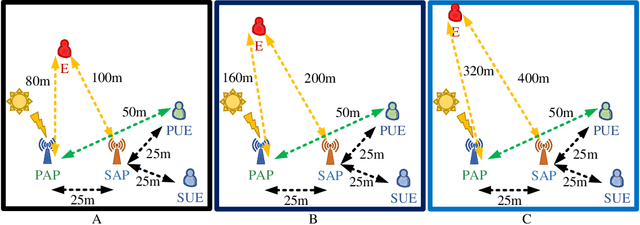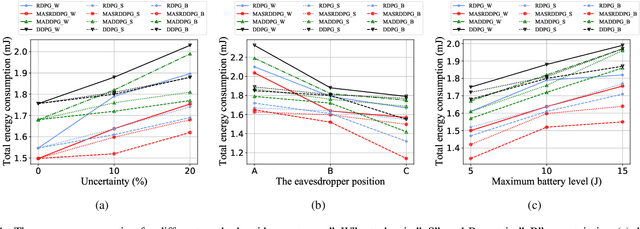AI-Based Secure NOMA and Cognitive Radio enabled Green Communications: Channel State Information and Battery Value Uncertainties
Paper and Code
Jun 30, 2021



In this paper, the security-aware robust resource allocation in energy harvesting cognitive radio networks is considered with cooperation between two transmitters while there are uncertainties in channel gains and battery energy value. To be specific, the primary access point harvests energy from the green resource and uses time switching protocol to send the energy and data towards the secondary access point (SAP). Using power-domain non-orthogonal multiple access technique, the SAP helps the primary network to improve the security of data transmission by using the frequency band of the primary network. In this regard, we introduce the problem of maximizing the proportional-fair energy efficiency (PFEE) considering uncertainty in the channel gains and battery energy value subject to the practical constraints. Moreover, the channel gain of the eavesdropper is assumed to be unknown. Employing the decentralized partially observable Markov decision process, we investigate the solution of the corresponding resource allocation problem. We exploit multi-agent with single reward deep deterministic policy gradient (MASRDDPG) and recurrent deterministic policy gradient (RDPG) methods. These methods are compared with the state-of-the-art ones like multi-agent and single-agent DDPG. Simulation results show that both MASRDDPG and RDPG methods, outperform the state-of-the-art methods by providing more PFEE to the network.
 Add to Chrome
Add to Chrome Add to Firefox
Add to Firefox Add to Edge
Add to Edge